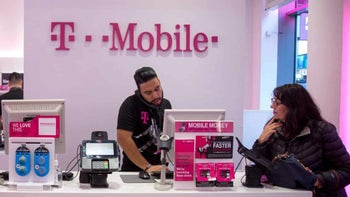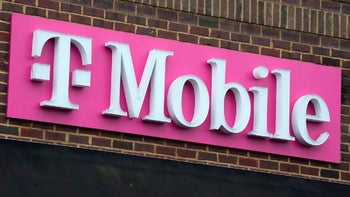T-Mobile might soon be clashing with partner SpaceX over 5G spectrum

T-Mobile may soon find itself competing with its partner on the satellite initiative, SpaceX for wireless spectrum.
Federal Communication Commission chairman Brendan Carr is considering opening up the upper C-band (3.98–4.2 GHz) "for more intensive use" and while the decision was cheered on by the Cellular Telecommunications and Internet Association (CTIA), which represents AT&T, T-Mobile, and Verizon, it might be too soon to celebrate as SpaceX has expressed an interest in the spectrum.
This means, as Light Reading notes, that the FCC will consider both terrestrial and satellite-based operators when allocating the spectrum. And considering SpaceX's CEO Elon Musk's grip on President Donald Trump, it's natural to wonder whether this will work against wireless companies.
Analysts are divided on whether Elon Musk's influence will have any bearing on the outcome, with New Street Research policy adviser Blair Levin highlighting Elon's propensity to get his way and TMF Associates' analyst Tim Farrar stating that "it's unclear whether SpaceX could overcome the wireless lobby's desire for more terrestrial spectrum."
In its filing, SpaceX says that the 3.7–4.2 GHz band or the C band is a prime band for many services due to its "desirable coverage, capacity, and propagation characteristics." The company has proposed that the 200 MHz of the upper C-band be modernized to make sure it is put to its best use.
Federal Communication Commission chairman Brendan Carr is considering opening up the upper C-band (3.98–4.2 GHz) "for more intensive use" and while the decision was cheered on by the Cellular Telecommunications and Internet Association (CTIA), which represents AT&T, T-Mobile, and Verizon, it might be too soon to celebrate as SpaceX has expressed an interest in the spectrum.
Analysts are divided on whether Elon Musk's influence will have any bearing on the outcome, with New Street Research policy adviser Blair Levin highlighting Elon's propensity to get his way and TMF Associates' analyst Tim Farrar stating that "it's unclear whether SpaceX could overcome the wireless lobby's desire for more terrestrial spectrum."
SpaceX had previously urged the FCC to allow both satellite operators and terrestrial operators to share the upper C-band, stressing that a modernized sharing framework for the upper C-band "is essential to solidify American leadership in 6G, which will interweave terrestrial and satellite networks into a seamless consumer experience."
In its filing, SpaceX says that the 3.7–4.2 GHz band or the C band is a prime band for many services due to its "desirable coverage, capacity, and propagation characteristics." The company has proposed that the 200 MHz of the upper C-band be modernized to make sure it is put to its best use.
Also read: T-Mobile and Starlink partnership and connectivity explained
The FCC also repurposed the lower C-band spectrum (3.7-3.98 GHz) for terrestrial 5G services in 2021, with AT&T, Verizon, and T-Mobile spending $80 billion on the auction.
This is partly why the upper C-band spectrum is attractive for wireless carriers. As industry analyst Roger Entner explains, it's a mid-band spectrum that’s contiguous with the C-band spectrum that the carriers are already using.
On the other hand, the upper C-band spectrum might not be ideal for SpaceX's direct-to-device (D2D) and broadband services.
For now, it appears that the odds are in the favor of terrestrial networks, but it will still be interesting to see how it all plays out.
The FCC also repurposed the lower C-band spectrum (3.7-3.98 GHz) for terrestrial 5G services in 2021, with AT&T, Verizon, and T-Mobile spending $80 billion on the auction.
This is partly why the upper C-band spectrum is attractive for wireless carriers. As industry analyst Roger Entner explains, it's a mid-band spectrum that’s contiguous with the C-band spectrum that the carriers are already using.
It's hard to see how they would use it for Starlink broadband because C-band is such a low frequency. It would not be particularly useful compared to the higher frequencies that they’re using for their existing broadband services. It would not be a useful band for them compared to other bands, but it’s a power play, in my mind. If SpaceX can get this, then what’s to stop them from getting any other spectrum they want or undermining anyone else’s position unless they defer to SpaceX or cooperate with SpaceX?
Tim Farrar, analyst at TMF Associates, February 2025
For now, it appears that the odds are in the favor of terrestrial networks, but it will still be interesting to see how it all plays out.










Things that are NOT allowed: